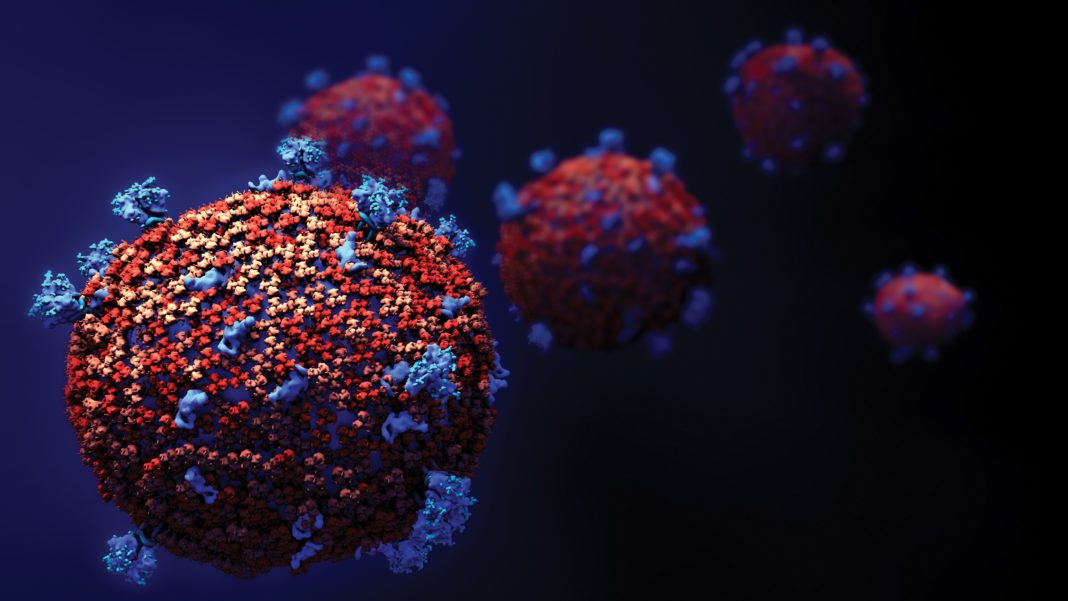Researchers have shown, over the past two years, that certain microbial populations are associated with COVID-19 severity. However, other impacts of the microbiome on COVID-19—including causal ones—have remained unknown. Now, a study provides important new information regarding the relationship between the two.
First, researchers used a mouse model to show that SARS-CoV-2 alone causes gut microbiome dysbiosis (disruptions) and gut epithelial cell alterations. In addition, the team analyzed human stool samples from patients at NYU Langone Health and Yale New Haven Hospital. In doing so, they found results similar to what they had observed in mice: COVID-19 is associated with severe microbiome injury characterized by loss of diversity and anaerobe taxa. Lastly, through sequencing data from the stool samples and blood cultures, they found that gut dysbiosis in COVID-19 patients is associated with secondary bloodstream infections by gut bacteria.
This work is published in Nature Communications, in the article, “Gut microbiome dysbiosis in antibiotic-treated COVID-19 patients is associated with microbial translocation and bacteremia.”
It has remained unclear, until now, which came first—a SARS-CoV-2 infection disrupting the gut microbiome or an already weakened gut making the body more vulnerable to the virus. This study favors the former explanation. The new investigation also revealed that antibiotic-resistant species can escape into the bloodstream, putting patients at greater risk for life-threatening secondary infections.
“Our findings suggest that coronavirus infection directly interferes with the healthy balance of microbes in the gut, further endangering patients in the process,” said Ken Cadwell, PhD, professor of microbiology, department of microbiology at NYU Grossman School of Medicine. “Now that we have uncovered the source of this bacterial imbalance, physicians can better identify those coronavirus patients most at risk of a secondary bloodstream infection.”
The study involved samples from 96 men and women hospitalized with COVID-19 in 2020 in New York City and in New Haven, CT. The majority of patients had low gut microbiome diversity, with a full quarter dominated by a single type of bacteria. And populations of several microbes known to include antibiotic-resistant species increased. These antibiotic-resistant bacteria found in the gut were also observed to have migrated into the bloodstream in 20% of patients. The study authors noted that further research is needed to uncover why this group was at higher risk for a secondary infection while others remained protected.
The new study is the first to show that the coronavirus infection alone, and not the initial use of antibiotics to treat the disease, damages the gut microbiome, said Cadwell. He added the study also provides the first evidence that the very same bacteria in the gut are also entering the bloodstream of patients, causing dangerous infections.
The findings, the authors wrote, reveal “an unappreciated link between SARS-CoV-2 infection, gut microbiome dysbiosis, and a severe complication of COVID-19, BSIs [bloodstream infections].”
“Our results highlight how the gut microbiome and different parts of the body’s immune system are closely interconnected,” said Jonas Schluter, PhD, an assistant professor in the department of microbiology at NYU. “An infection in one can lead to major disruptions in the other.” Schluter cautioned that since the patients received different kinds of treatments for their illness, the investigation could not entirely account for all factors that may have contributed to the disruption of their microbiome and worsened their disease.
According to Schluter, the study team next plans to examine why certain microbial species are more likely to escape the gut during COVID-19. The researchers said they also intend to explore how different microbes interact, which may contribute to this migration into the bloodstream.



